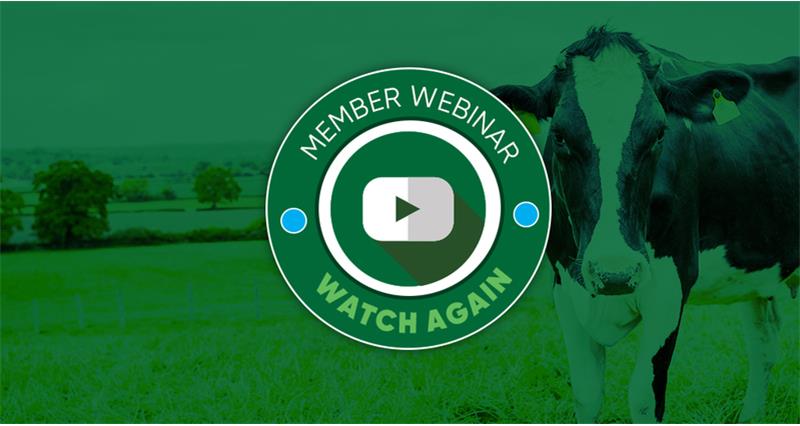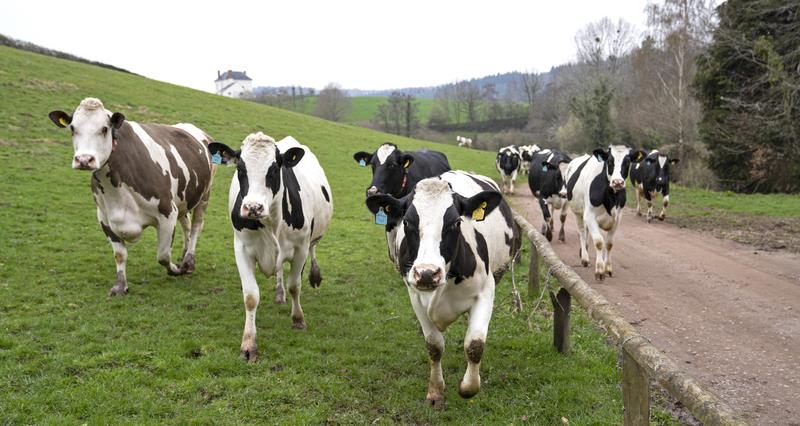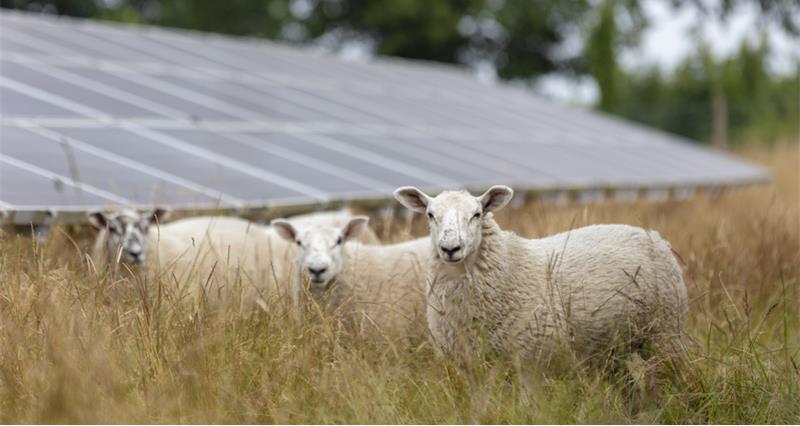Signs and symptoms
Bluetongue (BTV) affects sheep, cattle and other ruminants. It is a viral disease spread by biting midges, which affects all ruminants (e.g. sheep, cattle, goats and deer) and camelids (such as llama and alpaca).
BTV-3 is a relatively new strain, first reported in September 2023 in the Netherlands. Cases have since been reported in Belgium, Germany, France, Luxembourg, Denmark and Switzerland. The first case was confirmed in the UK on 10 November 2023.
Symptoms vary across ruminants, but include fever, lesions, redness of the mouth, eyes, nose, reddening of the skin above the hoof, excessive salivation and nasal discharge. However, animals may show little or no clinical signs.
It does not affect humans or food safety – meat and milk from infected animals are also safe to eat and drink.
For signs and symptoms of bluetongue, visit: GOV.UK | Bluetongue: how to spot and report the disease
Reporting suspected cases
Bluetongue is a notifiable animal disease. If you suspect it you must report it immediately. Failure to do so is an offence:
- England – call the Defra Rural Services Helpline on 03000 200 301.
- Wales – contact 0300 303 8268.
- Scotland – contact your local Field Services Office.
BTV-12
A new bluetongue virus serotype 12 (BTV-12) has been detected on eight farms in four different provinces in the Netherlands. In total, three sheep and eight cattle farms across different regions are involved in the detection.
No animals were imported from areas where BTV-12 is prevalent.
Variants of BTV-12 occur in Africa, Israel, Asia and North and South America. These known variants do not resemble the Dutch variant sufficiently to be able to indicate a specific origin.
The Dutch authorities are still therefore investigating the source. They have discounted a link to vaccine use, based on genetic sequencing analysis of the virus seroptype.
The Dutch Authorities have shared information about the genetic composition of the new virus with vaccine manufacturers, in the hope that they can use it to develop a vaccine.
The UK Government and the Pirbright Institute are in contact with their Dutch counterparts and are supporting and monitoring the situation.
Vaccines
Defra’s Secretary of State has permitted the use of three unauthorised bluetongue serotype 3 (BTV-3) vaccines within the UK, subject to licence.
Unlike the authorised vaccines for other BTV serotypes, the BTV-3 vaccines claim to reduce viraemia rather than prevent it. This means they may not prevent your animals from being infected or infectious, but (depending on the vaccine) their claims include reduction or prevention of clinical signs experienced or mortality.
For this reason, all movement controls and trade restrictions still apply to vaccinated animals.
Discuss the merits of vaccination for your animals and business with your private veterinarian.
For more information, refer to the section on 'speak to your vet' at: GOV.UK | Bluetongue serotype 3 (BTV-3) vaccine: information for keepers.
Animal keepers in England can use these vaccines under general licence and must comply with the listed schedule of conditions.
For example, when you use a BTV-3 vaccination you must:
- Keep a record of every animal you vaccinate – the information you need to record is on the general and specific licences.
- Keep these records for at least five years.
- Provide details, including the individual animal IDs and vaccine you use, to Defra within 48 hours of vaccinating through completion of an online form.
These vaccines are being used in mainland Europe against BTV-3. These are unlicenced medicines but have been approved in the EU for emergency use.
Key links
Information on BTV-3 vaccines including the SPCs (summaries of product characteristics), permits and licences can be accessed at: GOV.UK | BTV-3 vaccine permits.
The general licence for using the inactivated BTV-3 vaccine in England can be found at: GOV.UK | General licence for bluetongue serotype 3 (BTV-3) vaccine.
The NFU strongly recommends that those interested in using a BTV-3 vaccine consult with their veterinary surgeon first to establish how a vaccine will benefit your animals and farm system.
It is important that you consider the timings of any vaccination programme and what your future animal movements or buying and selling policy will be.
Please be aware that these vaccines make no claims to reduce viraemia so they may not prevent your animals from being infected or infectious, but (depending on the vaccine) their claims include reduction or prevention of clinical signs experienced, or mortality associated, with BTV-3 so they could provide a benefit in terms of individual animal health and welfare.
Restricted and temporary control zones
Following the identification of cases in cattle close to the boundary of the restricted zone in Hampshire, Berkshire and in the East Riding of Yorkshire, the restricted zone was further extended on 15 December and now includes:
- Bedfordshire
- Berkshire (part)
- Bournemouth
- Christchurch and Poole
- Buckinghamshire
- Cambridgeshire
- City of Kingston upon Hull
- City of York
- Dorset
- East Riding of Yorkshire
- East Devon (part)
- East Sussex
- Essex
- Greater London
- Hampshire
- Hertfordshire
- Isle of Wight
- Kent
- Leicestershire (part)
- Lincolnshire
- Norfolk
- North Yorkshire (part)
- Northamptonshire
- Nottinghamshire
- Oxfordshire (part)
- Somerset (part)
- Suffolk
- Surrey
- Warwickshire (part)
- West Sussex
- Wiltshire (additional part)
The new declaration revokes the previous declarations: GOV.UK | Declaration of an extended bluetongue restricted zone on 14 February 2025.
Details of the zone can be found on the bluetongue interactive map.
Cases not in bluetongue zones
There are 16 cases that are not in the current restricted zone, linked to animals that have moved to premises before bluetongue restrictions were put in place or through importing animals from countries close to where disease is present.
The premises are in Bath, North East Somerset (BANES), Somerset, Shropshire, Cheshire, Cumbria, Anglesey, Gwynedd, North Yorkshire and Cornwall.
The premises were initially placed under restriction and the infected animals have been culled. Further testing will be undertaken to ensure there has been no local transmission. The premises in Gwynedd is no longer under restriction.
In addition to cases where disease was acquired in England, the UK CVO has confirmed BTV-3 in one animal imported into Devon.
A list of all cases and control zones is available at: GOV.UK | Notifiable animal disease cases and control zones.
You can access the APHA’s interactive map at: APHA | Interactive bluetongue virus map.
GOV.UK references
- Cases and control zones in England: GOV.UK | Bluetongue information and guidance – cases and control zones
- Latest situation in Wales:
- Signs and reporting: GOV.UK | Bluetongue: how to spot and report the disease
- Movement licences:
- A list of abbatoirs: GOV.UK | Designated slaughterhouses
- The latest situation in the EU: GOV.UK | Bluetongue virus in Europe
- Information on trade: GOV.UK | Imports, exports and EU trade of animals and animal products: topical issues
- Shows and events in England 2024: GOV.UK | Bluetongue guidance for shows and events in England in 2024
RH&W (Ruminant Health and Welfare) provides dedicated information on bluetongue. Visit: RH&W | Bluetongue Virus
AHDB is running a series of technical webinars which offer vet practitioners and other stakeholders valuable technical information about BTV-3.
Details of upcoming webinars can be found at AHDB | Bluetongue virus technical webinars.
Watch the previous webinars, which have covered topics such as the symptoms of BTV, the midge lifecycle and the impact of temperature on BTV transmission at: YouTube | AHDB.
In May 2024, APHA hosted a Plan, Prevent and Protect webinar aimed at organisers of agricultural shows and other events in England where cattle, sheep, pigs, camelids, poultry, other captive birds and other livestock will be present.
The webinar covered what organisers should consider and prepare for and what actions must be taken to protect the health of animals.
Although bluetongue is not the main topic of the webinar, there is a lengthy talk from Chloe Etherton, Defra Livestock Disease policy adviser, on the subject beginning at 24:45.
For more videos from APHA, visit: YouTube | APHA
On 4 October we hosted a webinar on the latest bluetongue situation, featuring NFU experts and Defra staff, chaired by NFU President Tom Bradshaw.

NFU CallFirst is also available for help and advice on farming, legal or technical issues on 0370 845 8458.




